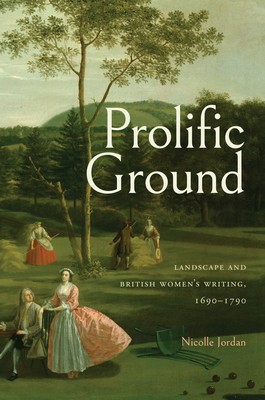
- We will send in 10–14 business days.
- Author: Nicolle Jordan
- Publisher: Bucknell University Press
- ISBN-10: 1684485398
- ISBN-13: 9781684485390
- Format: 15.9 x 23.4 x 1.4 cm, minkšti viršeliai
- Language: English
- SAVE -10% with code: EXTRA
Reviews
Description
Land ownership--and engagement with land more generally--constituted a crucial dimension of female independence in eighteenth-century Britain. Because political citizenship was restricted to male property owners, women could not wield political power in the way propertied men did. Given its foundational socio-political function, land necessarily generated copious writing that vested it with considerable aesthetic and economic value. This book, then, situates these issues in relation to the historical transformation of landscape under emergent capitalism. The women writers featured herein--including Jane Barker, Anne Finch, Sarah Scott, and Elizabeth Montagu--participated in this transformation by celebrating female estate stewardship and evaluating the estate stewardship of men. By asserting their authority in such matters, these writers acquired a degree of independence and self-determination that otherwise proved elusive.
EXTRA 10 % discount with code: EXTRA
The promotion ends in 22d.22:04:37
The discount code is valid when purchasing from 10 €. Discounts do not stack.
- Author: Nicolle Jordan
- Publisher: Bucknell University Press
- ISBN-10: 1684485398
- ISBN-13: 9781684485390
- Format: 15.9 x 23.4 x 1.4 cm, minkšti viršeliai
- Language: English English
Land ownership--and engagement with land more generally--constituted a crucial dimension of female independence in eighteenth-century Britain. Because political citizenship was restricted to male property owners, women could not wield political power in the way propertied men did. Given its foundational socio-political function, land necessarily generated copious writing that vested it with considerable aesthetic and economic value. This book, then, situates these issues in relation to the historical transformation of landscape under emergent capitalism. The women writers featured herein--including Jane Barker, Anne Finch, Sarah Scott, and Elizabeth Montagu--participated in this transformation by celebrating female estate stewardship and evaluating the estate stewardship of men. By asserting their authority in such matters, these writers acquired a degree of independence and self-determination that otherwise proved elusive.


Reviews